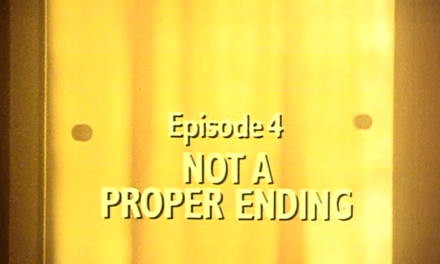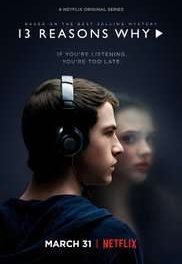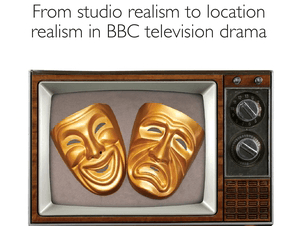Like many music fans, I spent the last weekend of June glued to the box, watching the BBC’s extensive coverage of Glastonbury. Actually, to call their coverage ‘extensive’ is something of an understatement. Over four days, the Beeb broadcast more than 250 hours of live music performances across television, radio, red button and online services. In excess of 100 acts were filmed exclusively for the corporation. In fact, they sent more staff to Glastonbury than they did the World Cup. If you were near Worthy Farm between the 26th and 30th of June 2014 and even thought about picking up a guitar, there is every chance that your actions have been captured by a BBC camera crew.
Since acquiring the rights to broadcast the event in 1997, the BBC has gone on to position Glastonbury as one of the major happenings in their television calendar. In fact, I’d go so far as to say that the Corporation has in recent years attempted to position their coverage of Glastonbury Festival as what Dayan and Katz called a “media event.” Like an Olympic Games or a Royal Wedding, the festival is an interruption of broadcast norms (1992: 1). It is a live happening that encourages audiences to stop their daily routines and join in a holiday experience that proposes exceptional things to think about and do (Ibid: 5).
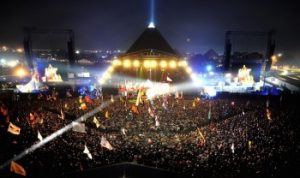
It strikes me that positioning Glastonbury festival as a media event on the BBC is not without its problems. A lot of those problems are down to the fact that media events are supposed to represent consensual, hegemonic values, something which Glastonbury (in the past, at least) has not. Historically, the festival has been a self-consciously alternative affair. A product of hippie ethics and the free festival movement when it was first hosted in 1970, Glasto would become increasingly associated with alternative politics, alternative lifestyles and alternative music as the years went on. In the early 1980s, the festival was organized in conjunction with Campaign For Nuclear Disarmament, being renamed the Glastonbury CND Festival and with a proportion of the profits donated to the organization. In the post Cold-War years, it began a long standing association with non-governmental environmental organization Greenpeace. The early 1990s saw the festival become a champion of the emerging acid house and rave scenes in the UK, movements whose drug associations had been the subject of moral panic in the mainstream news press.
Based on its history as a self-consciously alternative occasion, Glastonbury doesn’t seem like the best fit for media event status. What fascinates me in this regard is the way that the BBC has attempted to negotiate this juxtaposition and attempt to reposition Glastonbury as an event of mainstream cultural significance. In evidence of this, you’ve only got to look at the rhetoric used in the promotional trailers or idents that the BBC puts out in advance of the broadcast. In 2013 for example, adverts for Glastonbury featured presenter Chris Evans and a number of other BBC television presenters inviting audiences to “come with us to the greatest festival in the world… where music history is made.” The emphasis here on musical history, on Glastonbury as a canonical event seems to downplay any sense of Glasto’s alternative remit, while the use of Chris Evans, host of the BBC’s flagship magazine programme The One Show, as well as BBC Radio 2’s Breakfast Show, seems to affirm the festival’s mainstream appeal. The language used is also telling of this, with the invitation for viewers to join us (and it seems to me that the use of us here is nebulous and could refer to the presenters, the BBC, or the populace at large) positioning Glastonbury as representing some kind of consensus. This year’s festival advertisements took the sense of hegemonic Glastonbury to a global level, promising that the BBC would bring “the world’s favorite festival… to you!”

Chris Evans and Alex Jones bring Glasto to the masses
Certainly, there has been an attempt on the part of the BBC to demonstrate that Glastonbury stands for consensual values. Yet, what I find interesting here is the way in which the Festival itself seems to have shifted in order to affirm this notion. Specifically, I would argue that, in the past decade or so, the kind of acts that perform at Glastonbury Festival have changed to accommodate for a more mainstream audience. While Glastonbury had been regarded for its championing of new music in the past, it seems that there has been what I would call a “classic-rockification” of the festival in recent years. Since 2007, at least one of the three Glasto headliners each year has been the likes of The Rolling Stones, The Who, U2 , Bruce Springsteen, Neil Young and Stevie Wonder; acts with 30+ year recording histories and multi-platinum sales under their belts. It seems to me that these acts have been chosen to headline the festival precisely because their appeal is incredibly broad. Unlike emerging rock acts, who one might expect to appeal to a younger, music-savvy demographic, these artists attract a cross-generational, mass audience, making them fit for family living room viewing. With this in mind, it is perhaps unsurprising that the two most controversial headliners of Glastonbury festival in recent years were Jay-Z and Metallica, who, as hip-hop and heavy metal artists respectively, were potentially alienating to sections of the audience viewing Glasto from the comfort of their own homes.
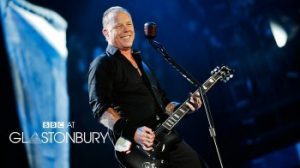
Metallica’s James Hetfield gives his best smile for the parents watching at home
Ultimately, the transformation of Glastonbury from alternative gathering on the fringes of cultural acceptability to “high holiday of mass communication” (Dayan and Katz, 1992: 1), is something that fills me with mixed emotions. The snobby, 16 year old muso that still resides somewhere inside me (as part of my sub-conscience I hasten to add; I haven’t eaten a teenager) wants to bemoan the sanitization of the once great festival at the hands of the Big British Castle (to quote Adam and Joe). Yet, I increasingly find myself grateful of the opportunity to (at least vicariously) experience a three day music festival from the comfort of my own home. Glasto is perhaps no longer the great champion of radical music and politics that it used to be, but these days I can watch it in my slippers. I guess that’s a fair trade.
Alec Plowman is a PhD student at the University of East Anglia researching media representations of liveness in rock music. When he is not doing research, he writes for a number of publications including Ultimate Guitar, Rhythm Circus and the Led Zeppelin fan magazine Tight But Loose. He is also bassist/vocalist in the hard rock band Monster City.


